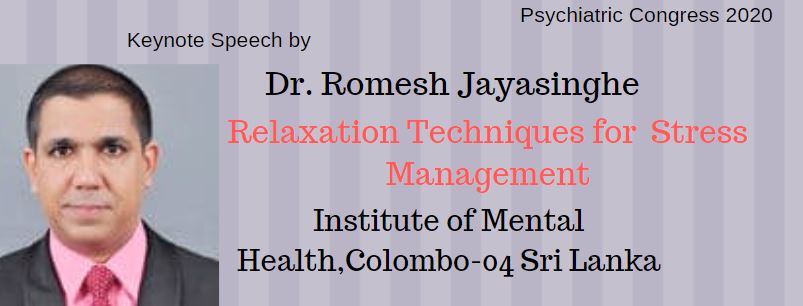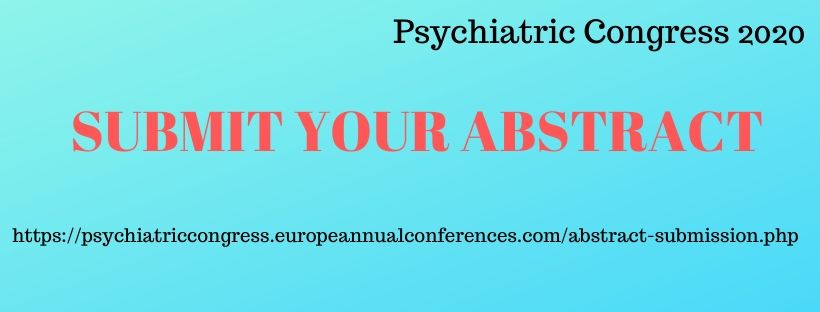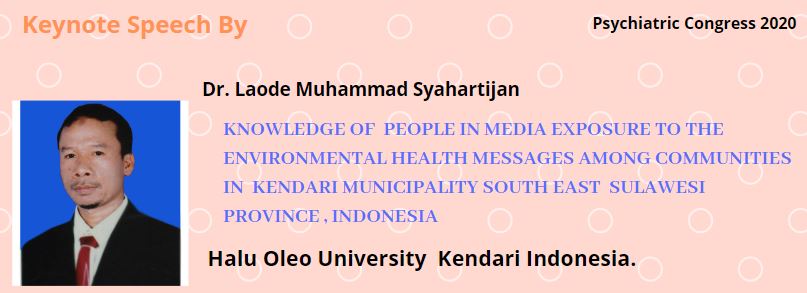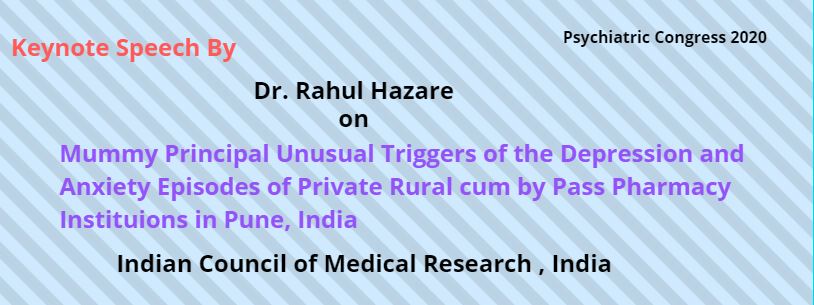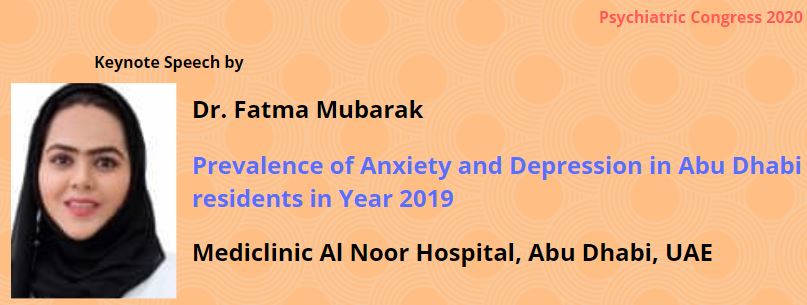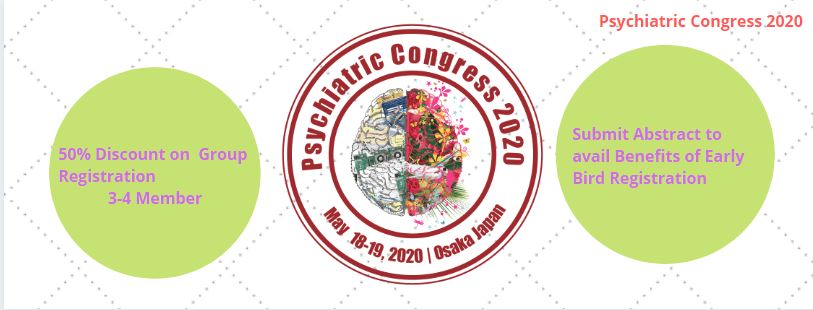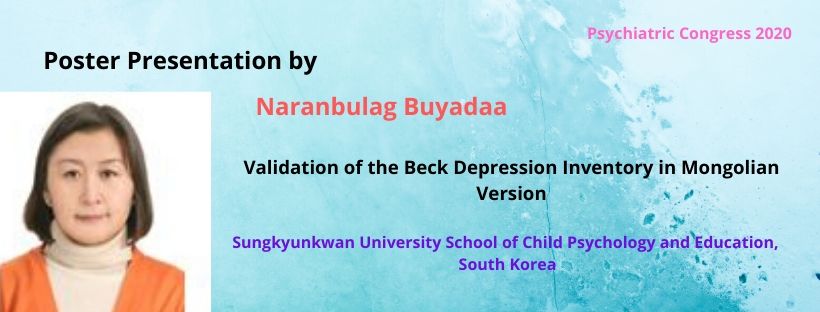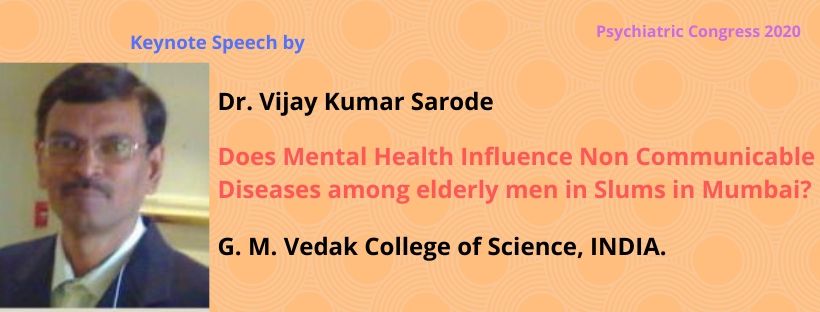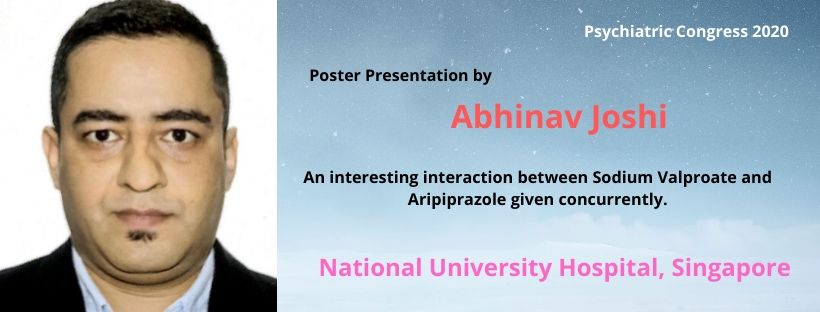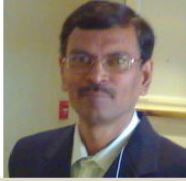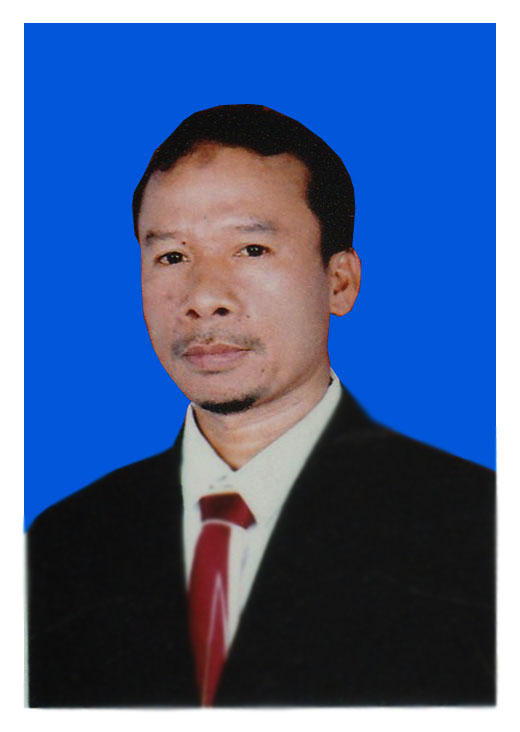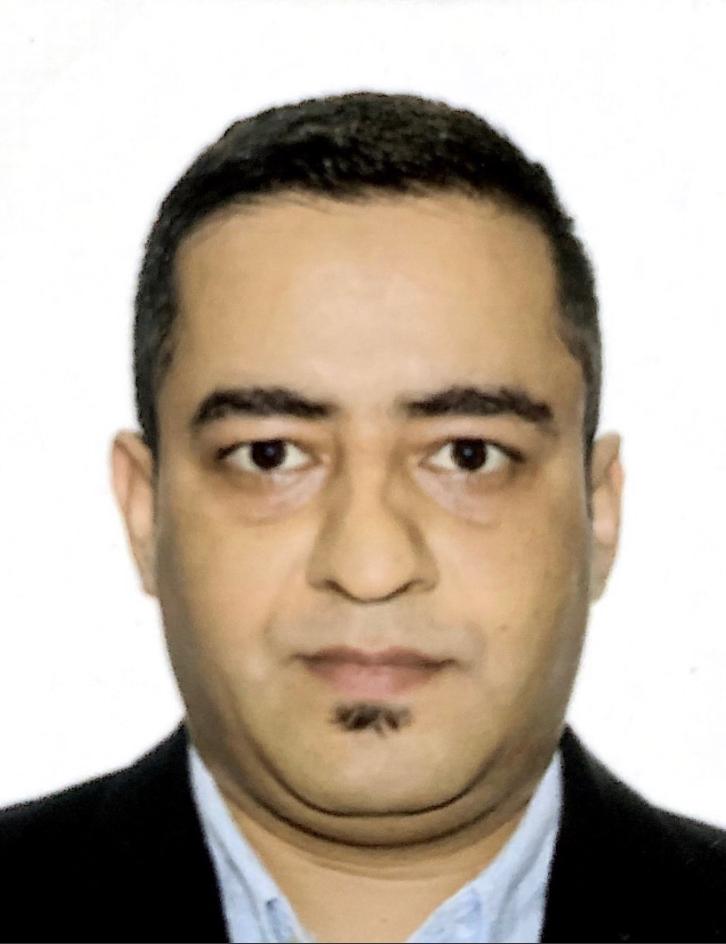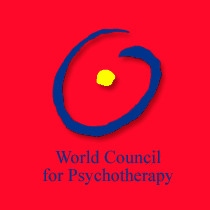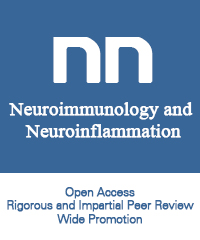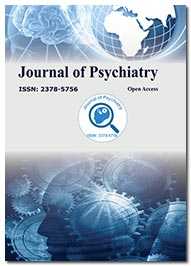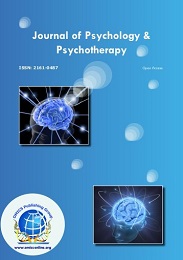Theme: Emerging Trends in Psychiatry and Mental Health
Renowned Speakers
Psychiatric Congress 2020
35th International Conference on Psychiatry and Mental Health (Psychiatric Congress 2020) is going to become a huge platform to all the Neurologists, Psychologists, Neurosurgeon, NeuroResearcher, Students, Psychiatrists ,Psychotherapists and expertise in the field of psychiatry to share and explore their views on their research and case studies with the global experts. The conference is going to be held during May 18-19 2020 at Osaka, Japan which revolves around the theme" Emerging Trends in Psychiatry and Mental Health”.
We are thrilled to bring together a community of individuals dedicated to transforming the health in a different way. 35th International Conference on Psychiatry and Mental Health (Psychiatric Congress 2020 ) is more than a conference, which has something for everyone from the science in the field of psychiatry . As a community of natural healer’s and healthcare providers, we know that we need to mobilize and be the change we want to see in the medical era. It is our opportunity to connect with the people involved in this from all over the world to learn the latest information on the Psychiatry. This International Conference will provide a platform to budding researchers share their thoughts and experience towards the betterment of the quality of life.
Let us gather and share our knowledge and experiences in the Psychiatry and mental health for the betterment of the quality of life of our fellow humans.
Psychiatry is the branch of medicine focused on the diagnosis, treatment and prevention of mental, emotional and behavioral disorders. People seek psychiatric help for many reasons. The problems can be sudden, such as a panic attack, frightening hallucinations, thoughts of suicide, or hearing "voices." Or they may be more long-term, such as feelings of sadness, hopelessness, or anxiousness that never seem to lift or problems functioning, causing everyday life to feel distorted or out of control.
- Epidemiology of resilience
- Family resilience
- Psychological stress
- Resilience development programs
It is a medical specialty that studies the central and peripheral nervous systems through the recording of bioelectrical activity, whether spontaneous or stimulated.
- Counselling psychology
- Applied psychology
- Experimental psychology
It is a specialised branch of psychiatry which deals with the assessment and treatment of mentally disordered offenders in prisons, secure hospitals and the community.
- Treatmentrecommendations
- Assesmentoffuturerisk
It is a medical subspecialty within psychiatry that focuses on the evaluation, diagnosis, and treatment of people who are suffering from one or more disorders related to addiction. This may include disorders involving legal and illegal drugs, gambling, sex, food, and other impulse control disorders.
- Alcohol & drugs
- Drug and alcohol cultural issues
- Gambling
- Food and other addictions
- Phone and Internet Addictive Behaviours
- Innovative Models and Practice
5.Child and adolescent psychiatry or pediatric psychiatry
It is a branch of psychiatry that focuses on the diagnosis, treatment, and prevention of mental disorders in children, adolescents, and their families. It investigates the biopsychosocial factors that influence the development and course of these psychiatric disorders and treatment responses to various interventions.
- Child homicide
- Domestic violence
- Abusive minds
- Sexual abuse
Geriatric psychiatry emphasizes the biological and psychological aspects of normal aging, the psychiatric effect of acute and chronic physical illness, and the biological and psychosocial aspects of the pathology of primary psychiatric disturbances of older age. Geriatric psychiatrists focus on prevention, evaluation, diagnosis and treatment of mental and emotional disorders in the elderly and improvement of psychiatric care for healthy and ill elderly patients.
- Geriatric counselling
- Geriatric nursing
- Dementia
- Alzheimer’s disease
Psychosomatic medicine is an interdisciplinary medical field exploring the relationships among social, psychological, and behavioral factors on bodily processes and quality of life in humans and animals
- Hypnosis
- Group therapy
- Psychoanalysis
- Drug abreaction
8.PsychologyScientific discipline that studies mental states and processes and behaviour in humans and other animals.The discipline of psychology is broadly divisible into two parts: a large profession of practitioners and a smaller but growing science of mind, brain, and social behaviour. The two have distinctive goals, training, and practices
- Epidemiology of resilience
- Family resilience
- Psychological stress
- Resilience development programs
A professional specializing in diagnosing and treating diseases of the brain, emotional disturbance, and behavior problems .
- Developing prevention programs
- Consulting (especially with schools and businesses)
- Providing expert testimony (forensics)
Psychotherapist refers to a person which helps in the range of treatments that can help with mental health problems, emotional challenges, and some psychiatric disorders. It aims to enable patients, or clients, to understand their feelings, and what makes them feel positive, anxious, or depressed.
- Managing or maintaining interpersonal relationship or meeting personal goals.
- A syndrome characterized by a clinically significant disturbance in an individual's cognitive, emotion regulation, or behavior that reflects a dysfunction in the psychological, biological, or developmental process underlying mental functioning. Mental disorders are usually associated with significant distress in social, occupational, or other important activities." A large number of psychiatric disorders have been identified. Chances are that, whether or not you or someone close to you has been diagnosed with a psychiatric disorder, They make it hard for someone to think clearly, make good judgments, respond emotionally, communicate effectively, understand reality, and behave appropriately. When symptoms are severe, people with psychotic disorders have trouble staying in touch with reality and often are unable to handle daily life. But even severe psychotic disorders usually can be treated. Anxiety disorders
- Obsessive-compulsive disorder
- Affective Disorders
- Autism and Severe Developmental Disorders
- Complex Attachment Disorders
- Attention Deficit Hyperactivity Disorder
- Movement disorders
- Eating disorders
Depression (major depressive disorder) is a common and serious medical illness that negatively affects how you feel, the way you think and how you act. Fortunately, it is also treatable. Depression causes feelings of sadness and/or a loss of interest in activities once enjoyed. It can lead to a variety of emotional and physical problems and can decrease a person’s ability to function at work and at home.
Depression symptoms can vary from mild to severe and can include:
• Feeling sad or having a depressed mood
• Loss of interest or pleasure in activities once enjoyed
• Changes in appetite — weight loss or gain unrelated to dieting
• Trouble sleeping or sleeping too much
• Loss of energy or increased fatigue
• Increase in purposeless physical activity (e.g., hand-wringing or pacing) or slowed movements and speech (actions observable by others)
• Feeling worthless or guilty
• Difficulty thinking, concentrating or making decisions
• Thoughts of death or suicide
A personality disorder is a type of mental disorder in which you have a rigid and unhealthy pattern of thinking, functioning and behaving. A person with a personality disorder has trouble perceiving and relating to situations and people.
- Anxiety disorders
- Obsessive-compulsive disorder
- Affective Disorders
- Autism and Severe Developmental Disorders
- Complex Attachment Disorders
- Attention Deficit Hyperactivity Disorder
- Movement disorders
- Eating disorders
Anxiety disorders involve repeated episodes of sudden feelings of intense anxiety and fear or terror that reach a peak within minutes .These feelings of anxiety and panic interfere with daily activities, are difficult to control, are out of proportion to the actual danger and can last a long time. You may avoid places or situations to prevent these feelings. Symptoms may start during childhood or the teen years and continue into adulthood.
- Acute and chronic stress
- Social support
- Anxiety disorder
- Stress management
Schizophrenia is a chronic and severe mental disorder that affects how a person thinks, feels, and behaves. People with schizophrenia may seem like they have lost touch with reality.
The symptoms of schizophrenia fall into three categories: positive, negative, and cognitive.
Positive symptoms: “Positive” symptoms are psychotic behaviors not generally seen in healthy people. People with positive symptoms may “lose touch” with some aspects of reality. Symptoms include:
• Hallucinations
• Delusions
• Thought disorders (unusual or dysfunctional ways of thinking)
• Movement disorders (agitated body movements)
Negative symptoms: “Negative” symptoms are associated with disruptions to normal emotions and behaviors. Symptoms include:
• “Flat affect” (reduced expression of emotions via facial expression or voice tone)
• Reduced feelings of pleasure in everyday life
• Difficulty beginning and sustaining activities
• Reduced speaking
Cognitive symptoms: For some patients, the cognitive symptoms of schizophrenia are subtle, but for others, they are more severe and patients may notice changes in their memory or other aspects of thinking. Symptoms include:
• Poor “executive functioning” (the ability to understand information and use it to make decisions)
• Trouble focusing or paying attention
• Problems with “working memory” (the ability to use information immediately after learning it)
Eating disorders are serious conditions related to persistent eating behaviors that negatively impact your health, your emotions and your ability to function in important areas of life. Most eating disorders involve focusing too much on your weight, body shape and food, leading to dangerous eating behaviors. These behaviors can significantly impact your body's ability to get appropriate nutrition. Eating disorders can harm the heart, digestive system, bones, and teeth and mouth, and lead to other diseases
- Anorexia nervosa
- Bulimia nervosa
- Muscle dysmorphia
- Binge Eating Disorder
- Other Specified Feeding or Eating Disorder
Mental health or Psychiatric nursing is the specialty of nursing that cares for people of all ages with mental illness or mental distress, such as bipolar disorder, psychosis, schizophrenia, depression or dementia. Becoming a mental health nurse can be very gratifying, but it can be a stressful and emotionally draining job as well. As well as you can work full-time, part-time or casually in this field.
- Ethical and Legal Issues in Nursing
- Geriatric Mental Nursing
- Child and Adolescent Psychiatric Nursing
- Forensic Psychiatric Nursing
Psychotherapy or talk therapy is a way to help people with a broad variety of mental illnesses and emotional difficulties. Psychotherapy can help eliminate or control troubling symptoms so a person can function better and can increase well-being and healing.Problems helped by psychotherapy include difficulties in coping with daily life; the impact of trauma, medical illness or loss, like the death of a loved one; and specific mental disorders, like depression or anxiety. Problems helped by psychotherapy include difficulties in coping with daily life; the impact of trauma, medical illness or loss, like the death of a loved one; and specific mental disorders, like depression or anxiety.
- Hypnotherapy
- Acupuncture therapy
- Interpersonal therapy
Biological psychiatry mainly focusses on researching and understanding the biological basis of major mental disorders such as unipolar and bipolar affective (mood) disorders, schizophrenia and organic mental disorders such as Alzheimer's disease. This knowledge has been gained using imaging techniques, psychopharmacology, neuro immunochemistry.
20. Women Mental health and Illness
Some disorders are more common in women such as depression and anxiety. There are also certain types of depression that are unique to women. Some women may experience symptoms of mental disorders at times of hormone change, such as perinatal depression, premenstrual dysphoric disorder, and perimenopause-related depression. When it comes to other mental disorders such as schizophrenia and bipolar disorder, research has not found differences in rates that men and women experiences these illnesses. But, women may experience these illnesses differently – certain symptoms may be more common in women than in men, and the course of the illness can be affected by the sex of the individual. Researchers are only now beginning to tease apart the various biological and psychosocial factors that may impact the mental health of both women and men.
- Treatment Issues for Women with Mental Illness
- Women & Psychiatric Disorders
- Womens Mental Health in Special Populations
- Mental status examination
21. Stroke
A stroke is a sudden interruption in the blood supply of the brain. Most strokes are caused by an abrupt blockage of arteries leading to the brain (ischemic stroke). Other strokes are caused by bleeding into brain tissue when a blood vessel bursts (hemorrhagic stroke).
35th International Conference on Psychiatry and Mental Health welcomes attendees, presenters, and exhibitors from all over the world to Osaka, Japan. We are delighted to invite you all to attend and register for the “35th International Conference on Psychiatry and Mental Health (Psychiatric Congress 2020) which is going to be held during May 18-19 2020 at Osaka, Japan. The organizing committee is gearing up for an exciting and informative conference program including plenary lectures, symposia, workshops on a variety of topics, poster presentations and various programs for participants from all over the world. We invite you to join us , where you will be sure to have a meaningful experience with scholars from around the world. All the members of Psychiatric congress 2020 organizing committee look forward to meet you at Osaka, Japan.
Importance and Scope:
This conference addresses current & future trends at the interface of Neurology and Psychology. It emphasizes on the use various treatment methods for Neurological disorders. It intends to provide a platform for enthusiastic dialogs and trade between these controls. Neuropsychiatry is combination of both Neurology and Psychiatry which focuses on disorders related to mental health, in which many cases were revealed to be originated from a recognizable malfunction in the brain. The aim of Psychiatric is to comprehend the relation among the body, mind and its behavioral activities. The trained psychiatrists in the field of both neurological and psychiatric features of disease seats them in exceptional position to deliver this care. Psychiatrists works along with additional Neuroscience clinicians, namely neurosurgeon and neurologist, to deliver complete care to the patients.
Why Osaka?
35th International Conference on Psychiatry and Mental Health (Psychiatry Congress 2020) is going to be held at Osaka Japan. Osaka is a designated city in the Kansai region of Japan. It is the capital city of Osaka Prefecture and the largest component of the Keihanshin Metropolitan Area, the second largest metropolitan area in Japan and among the largest in the world with over 19 million inhabitants
Why to attend???.
Meet Your Target Market With members from around the world focused on learning about latest innovations in screening and treatments for neurological disorders; this is your single best opportunity to reach the largest assemblage of participants from the Universities, Neurology research centres and hospitals and conduct demonstrations of new screening instruments, distribute information about novel agents and strategies, meet with highly affiliated speakers, showing of clinical trials as well as advancements in new neurological therapies, current methods and controversies in psychic therapy and receive name recognition at this 2-day event. World-renowned speakers, the most recent techniques for screening as well as for treatment, and the newest updates in Psychiatry and Mental Health disorders and treatments are hallmarks of this conference.
Conference Highlights:
- Psychiatry and Psychology
- Geriatric and Paediatric Psychiatry
- Stress, Anxiety and Depression
- Addiction and its Disorders
- Schizophrenia and Nursing Care
- Neuroscience and Neuropsychiatry
- Mental Health and Psychiatric Nursing
- Mental Health and its Disorders
- Midwifery and Women’s Health
- Mental illness and Healthcare
- Sleep Disorder and Medicine
- Child and Adolescent Psychiatry
- Psychosis-Medication, Counseling and Early Intervention
- Research, Education and case studies on Mental Health
- Management and treatment of Mental Health issues
Societies Associated with Neurological Research:
- Mental health Association in Maryland
- Society for Mental Health Research
- American Academy of Child and Adolescent Psychiatry
- Australian Clinical Psychology Association
- American Association of Neurological Surgeons
- World Psychiatry Association
- American Psychiatric Association
- European Psychiatric Association
- American Psychological Association
- National Alliance on Mental illness
- American Association of Neurological Surgeons
- World Federation of Neurology
- The Clinical Neuroscience Society Singapore
- American Society for Neurochemistry
- World Federation of Neurology
- American Academy of Neurology
- World Federation of Neurology
- Spanish Society of Neurology
- American Academy of Neurology
- World Federation of Neurology
Members Associated with Neurological Research
- Neurologists
- Psychologists
- Neuro surgeons
- Neuro Researchers
- Students
- Psychiatrists
Conference Highlights
- Psychiatry
- Clinical Neuro physiology
- Forensic psychiatry
- Addiction Psychiatry
- Child and adolescent psychiatry or pediatric psychiatry
- Geriatric Psychiatry
- Psychosomatic medicine
- Psychology
- Psychologist
- Psychotherapist
- Psychiatric Disorders
- Depression
- Personality disorder
- Anxiety disorder
- Schizophrenia
- Eating Disorder
- Addictive behavior
- Psychotherapy
- Biological Psychiatry
- Women Mental health and Illness
- Suicide Prevention
- Sexual Abuse
- Post-Traumatic Stress Disorde
- Panic Disorder and Trauma
To share your views and research, please click here to register for the Conference.
To Collaborate Scientific Professionals around the World
| Conference Date | May 18-19, 2020 | ||
| Sponsors & Exhibitors |
|
||
| Speaker Opportunity Closed | |||
| Poster Opportunity Closed | Click Here to View | ||
Useful Links
Special Issues
All accepted abstracts will be published in respective Our International Journals.
- International Journal of Emergency Mental Health and Human Resilience
- Journal of Novel Physiotherapies
- Journal of Neuroinfectious Diseases
Abstracts will be provided with Digital Object Identifier by


